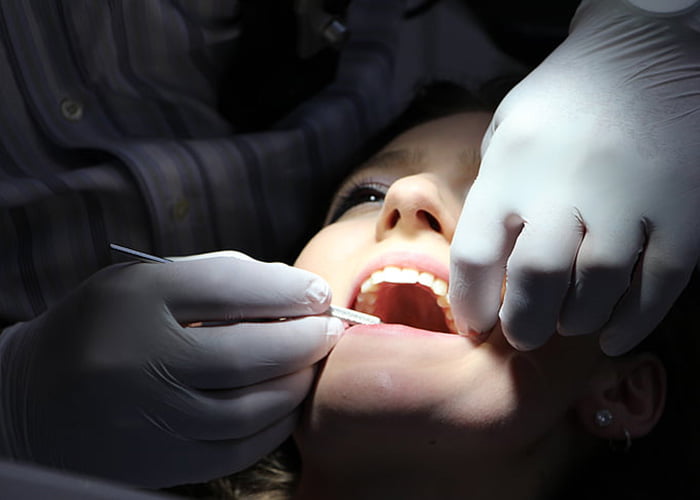Dental means more than just aesthetics, as it affects your health too. There are various types of dental treatments, with tooth extraction being one of the most common ones. But what is this treatment for? And when do you need it?
Tooth extraction can be as simple as having your tooth removed. However, it’s a long journey from when you decide to take it to aftercare.
Today, Dentist in Marrysville Ohio – Dentist for life will give you a complete guide to tooth extractions. You can also learn some recovery tips after the treatment. Let’s read on to discover!
What is tooth extraction?
A tooth extraction is the removal of a tooth from the mouth. It is also called exodontia. Extractions are performed for a variety of reasons, but most commonly to remove teeth that are decayed, broken, or impacted. Impacted teeth are usually removed in order to prevent damage to the surrounding teeth. Wisdom teeth, or third molars, are commonly removed because they often become impacted and can cause pain or other problems.
Tooth extraction can be as simple as having your tooth removed. However, it’s a long journey from when you decide to take it to aftercare.
Tooth extractions are typically performed by a dentist or oral surgeon. The procedure is usually quick and relatively painless. A local anesthetic is used to numb the area around the tooth and the tooth is then removed with forceps.
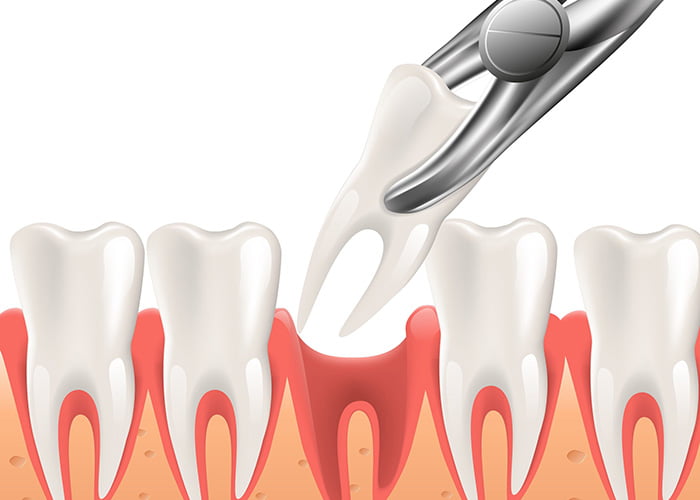
When a tooth is visible above the gum line and your dentist can easily remove it with forceps, the procedure is called a simple extraction. If a more volatile tooth has yet to grow in, however, your dentist needs to remove gum tissue or bone in order to extract it. This is called a surgical extraction and may require stitches to close the site so that it can heal properly. It is important to closely follow your dentist’s aftercare instructions to speed recovery and avoid complications.
Read more: How to stop bleeding after tooth extraction?
The surgical extraction of teeth may sound a bit daunting, but with today’s modern procedures and anesthesia, you have nothing to worry about. That’s’ because, although an extraction may be necessary, it doesn’t mean you have to live with missing teeth. Your dentist can provide the following restorative dental options to replace an extracted tooth:
- Single Implants
- Multiple Implants
- Bridges
- Implant Retained Dentures
- Standard Dentures
When Is Tooth Extraction Recommended?
Tooth extraction is a dental procedure that involves removing your decayed tooth. The dentist will recommend this treatment in these situations:
Decay
Having a decayed tooth is the first case. If the dentist can’t repair it with a crown or filling, they will remove it from your mouth.
Crowding
There are many more teeth than needed in your mouth. In this situation, you need more room for orthodontic treatment. The only solution is to remove the extra tooth.
Wisdom teeth
When your wisdom teeth emerge, there may be enough space for them. This issue will result in infections and painful impaction. What hurts you should go away, and that’s why you may think about the extraction.
Infection
If there is one infected tooth and you can’t treat it with antibiotics, it will affect other teeth. To stop the spread, consider removing it.
Gum disease
An extraction is necessary to stop further damage and encourage recovery if severe gum disease has impacted the bone and supportive tissue surrounding your tooth.
See more: Dentures in Marrysville
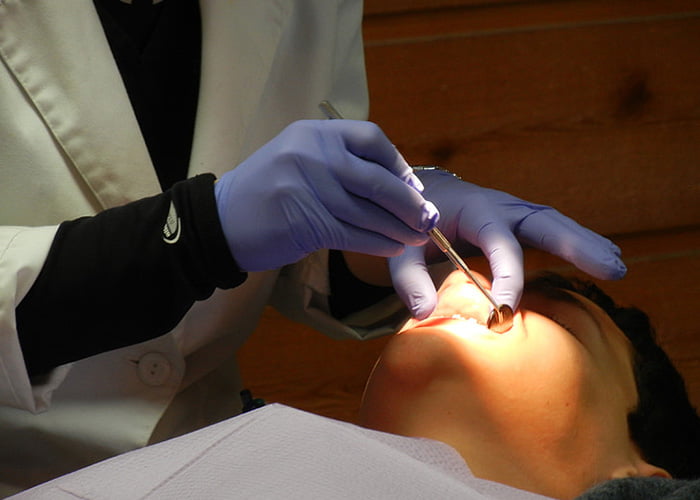
What to Expect with Tooth Extractions
We understand that the idea of having a tooth removed can be distressing and you may have some anxiety about visiting the dentist because of it. We offer sedation dentistry to help you feel more relaxed and comfortable during our procedure.
Afterwards, the gums around the area where the tooth was removed will be sore for some time and you will be given specific post-op instructions to ensure optimal healing. Despite this discomfort there are several reasons why tooth extractions are recommended, including the following:
- Severely damaged teeth
- Impacted teeth (this service is often referred out to an Oral Suregon)
- Wisdom Teeth (to prevent infection)
- Severely decayed teeth
- Preparation for dental implants
- Preparation for orthodontic treatment
- Treat overcrowding
- Prevent gum disease or an infection from spreading
If the wisdom teeth or impacted teeth in the back of the mouth were removed, you will need to keep the area clean and avoid eating from that side or drinking anything with a straw to protect the area while it heals. Also, if the blood clot forming over the extraction area is dislodged or removed, it can delay healing and increase the risk of infection.
See more: Wisdom Teeth Extraction in Ohio
What Is The Procedure For A Tooth Extraction?
There are 2 kinds of tooth extractions: surgical and simple.
The dentist will recommend the more suitable treatment after checking if your tooth is impacted or visible.
Simple Extraction
The simple extraction will be a common dental surgery performed to extract a visible tooth which is causing problems or can’t work.
A dentist will first numb around the tooth with the local anesthetic before using specialized dental tools to loosen your tooth and pull it from its socket.
The dentist often removes the tooth in one piece, disinfects the socket, and, if needed, employs some stitches to seal the gum tissue.
Surgical Extraction
On the other hand, a surgical extraction is a more complicated treatment. Dentists will use this method to remove teeth that are difficult to see.
This extraction is necessary for damaged teeth with a sizable piece of tooth structure in the socket. It can also help impacted teeth, such as wisdom teeth, that have not completely broken through the gum tissue.
To reach the tooth, a dentist may cut the gum tissue. Then, they will remove some parts of the surrounding bone to extract the tooth.
In some cases, dentists have to cut the impacted tooth into small pieces to extract it from the socket. Then, they will clean the socket and stitch it to seal the incision.
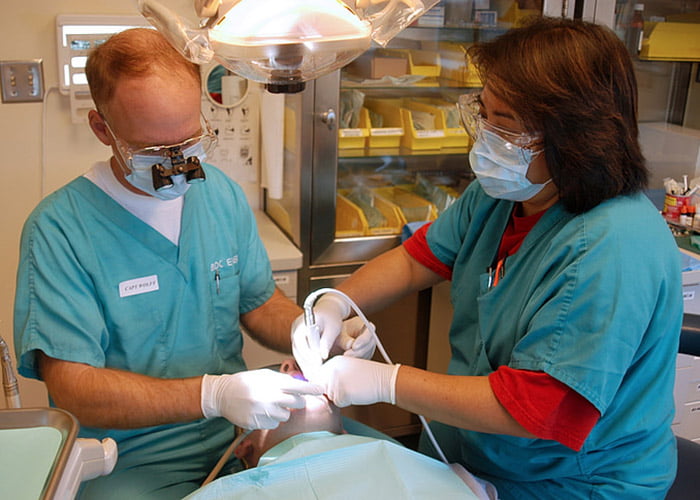
Risks And Benefits Of The Tooth Extraction
The dentist will decide if you should have your tooth removed. However, it’s still necessary to learn about the benefits and risks of tooth extraction.
What Are The Advantages Of Pulling A Tooth?
The benefits associated with this procedure include the following:
- Pain relief: The decayed tooth will hurt you all day and night. If you extract it, the discomfort will disappear.
- Improved oral condition: Extracting a decayed tooth will stop the spread of infection. You can also protect other teeth.
- Orthodontic treatment: If you intend to take an orthodontic treatment, you may need to remove one tooth or more so other teeth can move into their proper position.
- Aesthetics: The decayed tooth will turn darkened and discolored. Hence, consider removing it to protect your beautiful smile.
- Wisdom teeth: Biting and misalignment will occur due to the overcrowding caused by wisdom teeth. Having it removed is a good idea in this case.
What Are The Risks Or Complications Of The Tooth Extraction?
Tooth extraction comes with some risks, too. Let’s see what they are.
- Pain: After the treatment, you may experience swelling and some pain. But ice packs and over-the-counter pain relievers can help you with these problems. Moreover, they don’t last long.
- Bleeding: If you just bleed a little, it’s normal. Yet, contact your dentist in case of excessive bleeding.
- Dry socket: This condition occurs if the blood clot in the socket dissolves after tooth extraction.
- Nerve issues: Tooth extraction might harm your jaw’s blood vessels and nerves in some rare cases. The harm will lead to tingling or numbness in your lips, chin, or tongue.
- Infection: If you or the dentist don’t care about the incision or socket enough after the extraction, it will result in infection.
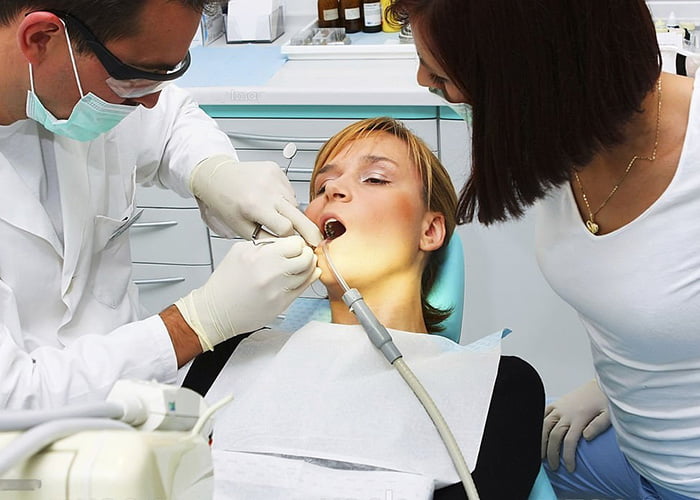
How Much Does A Tooth Extraction Cost?
The cost of a tooth extraction depends on several factors, such as the type of extraction, location, and insurance.
Types of extraction
As aforementioned, there are 2 primary types of the tooth extraction. Since the techniques and tools used for each differ, they will cost differently. Besides, working with wisdom teeth will be more complicated, increasing the cost.
Here is a common idea of how much you will pay for a tooth extraction:
- Simple extraction: This treatment is the most straightforward, as its name implies. The average price for the simple extraction will be about $75 to $400.
- Surgical extraction: Dentists use this method to deal with teeth that are hard to grasp. The cost for this practice is about $225 to $650.
- Wisdom tooth extraction: Most wisdom tooth extractions are surgical extractions. Some teeth can be trickier to remove than others. If you want to remove one of your wisdom teeth, expect the cost to be from $225 to $900.
Read more: How Much Does A Tooth Extraction Cost?
Location
Prices of everything differ from location to location, and the fee for tooth extraction is no exception. Some dental services can be customizable to a region’s cost of living.
Insurance
Dental insurance will cut down the cost for you, but how much it can cover depends on your plan and the kind of extraction performed.
Often, insurance can cover a part of your simple extraction’s fee. Meanwhile, a surgical extraction demands a higher copay.
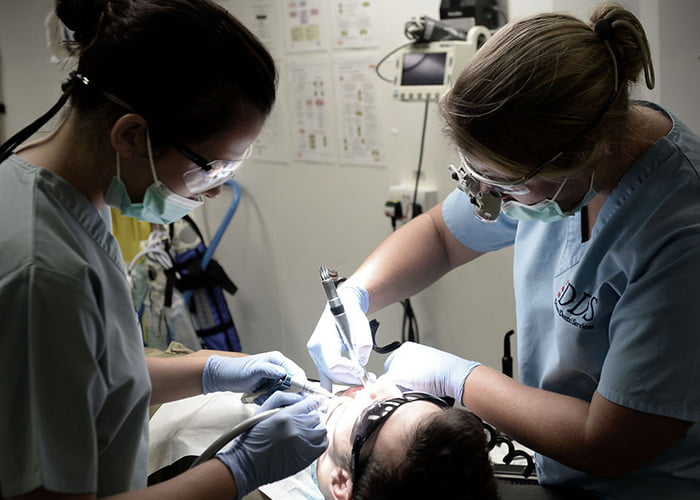
Recovery And Outlook
Removing your decayed tooth is not the end of the story. Your oral health will worsen if you don’t take care after the procedure.
How Long Does It Take To Recover From A Tooth Extraction?
Most people can recover within one week or two after a simple extraction. If you take a surgical extraction, the recovery time can be from several weeks to months.
However, the exact time varies from person to person. You should report your recovery progress to your dentist regularly.
The recovery timeline often goes like this:
- In the first one to two days, you experience bleeding, pain, and swelling.
- After the first few days, the discomfort and swelling should vanish. You can come back to your regular activities.
- In the next few weeks, the socket continues to heal. You may feel discomfort because the gum tissue and bone are growing back into place.
Read more: Is Tooth Extraction Painful?
Tooth Extraction Aftercare
The healing process after dental procedures is crucial because it reduces the risk of infections and accelerates healing. Here is what you should do:
- After the extraction, bite a gauze pad for around 30 minutes to help reduce bleeding. If the bleeding doesn’t stop, put a moist tea bag in the socket and continue biting.
- If you feel pain, use ice packs or pain relievers.
- For the first few days, eat soft food only. Hard, crunchy, and chewy foods might irritate the blood clot or impair the healing socket.
- Maintain good dental hygiene. It includes simple tasks, such as brushing gently and rinsing with salt water.
- Avoid smoking during the first 24 hours after the dental procedure. Attend your follow-up appointment with your dentist.
- Contact your dentist if you have a fever or if the pain or swelling persists.

Notes From Dentistforlife Clinic
Sometimes, you must get your decayed tooth extracted to protect other teeth and your oral health. Follow the dentist’s instructions in every treatment step, and you won’t have to worry about anything.
Proper aftercare is also important. The tips we have shared in this guide will help you stay safe and recover soon.
Hopefully, you will find this article helpful. For any further information about tooth extraction, please feel free to ask. Thank you for reading!

